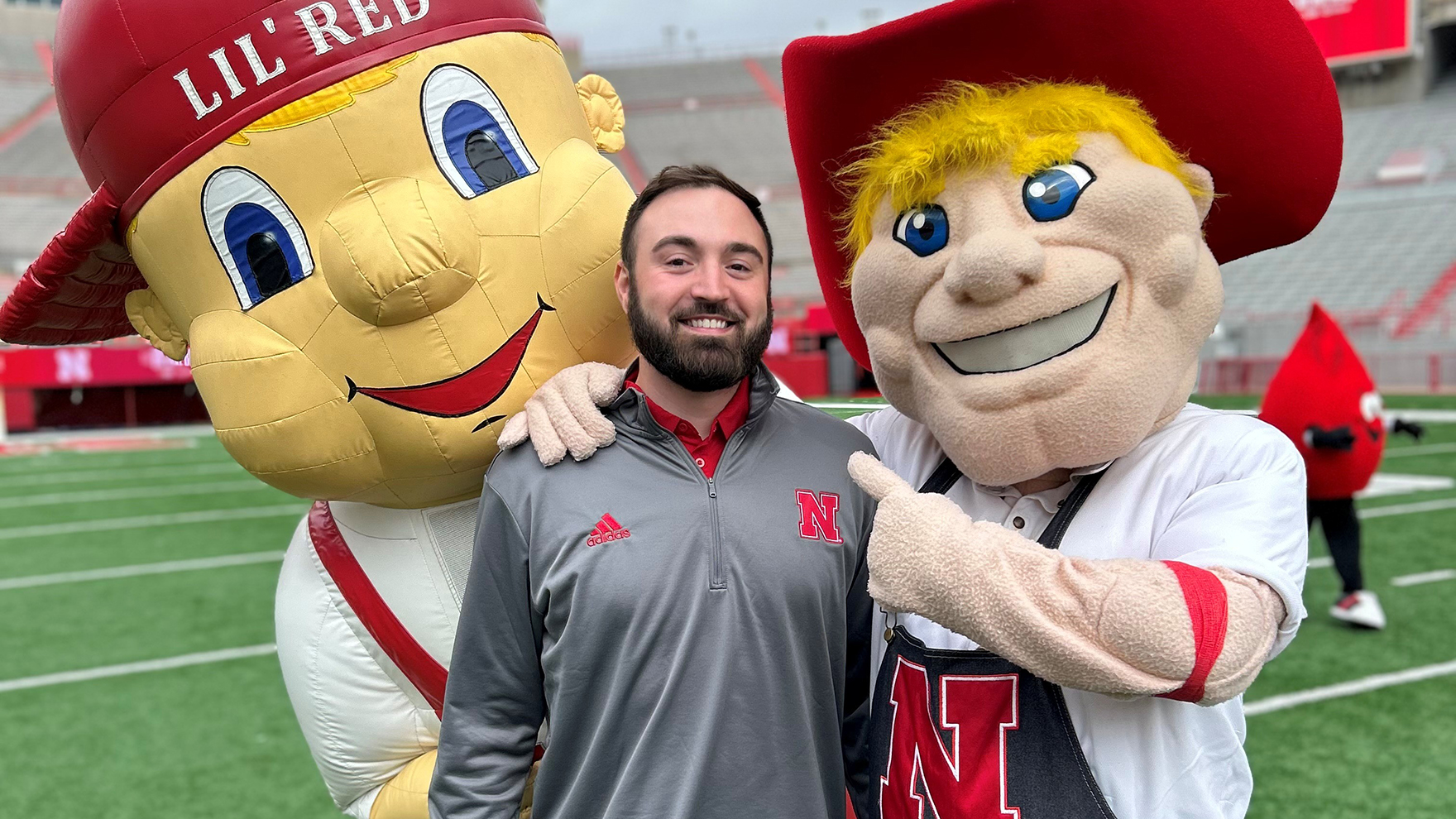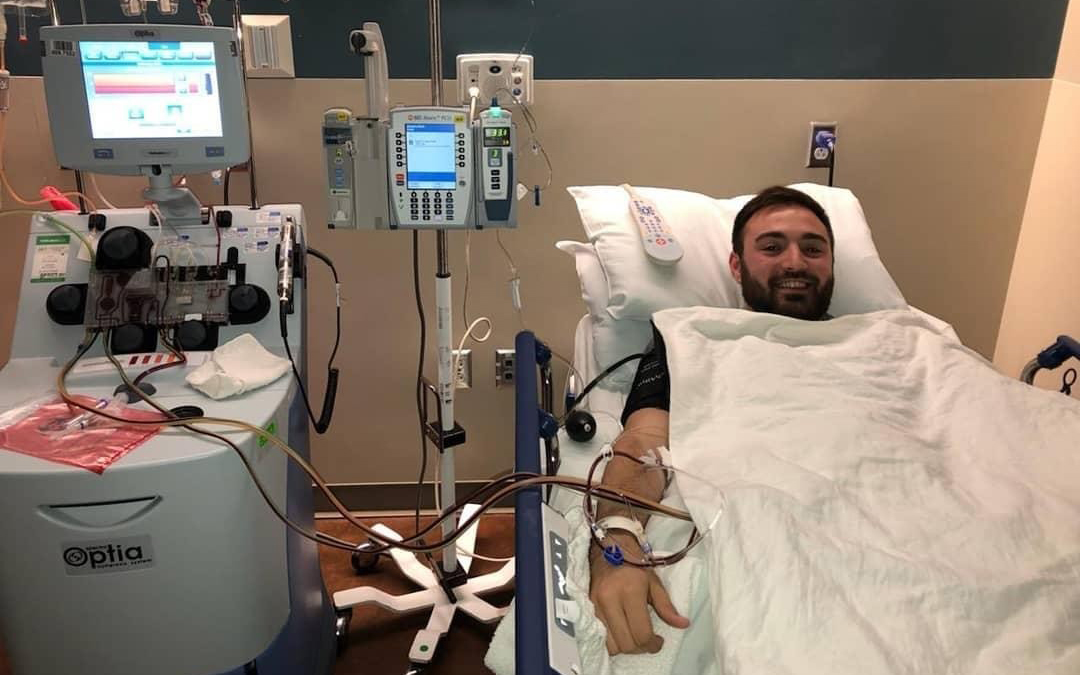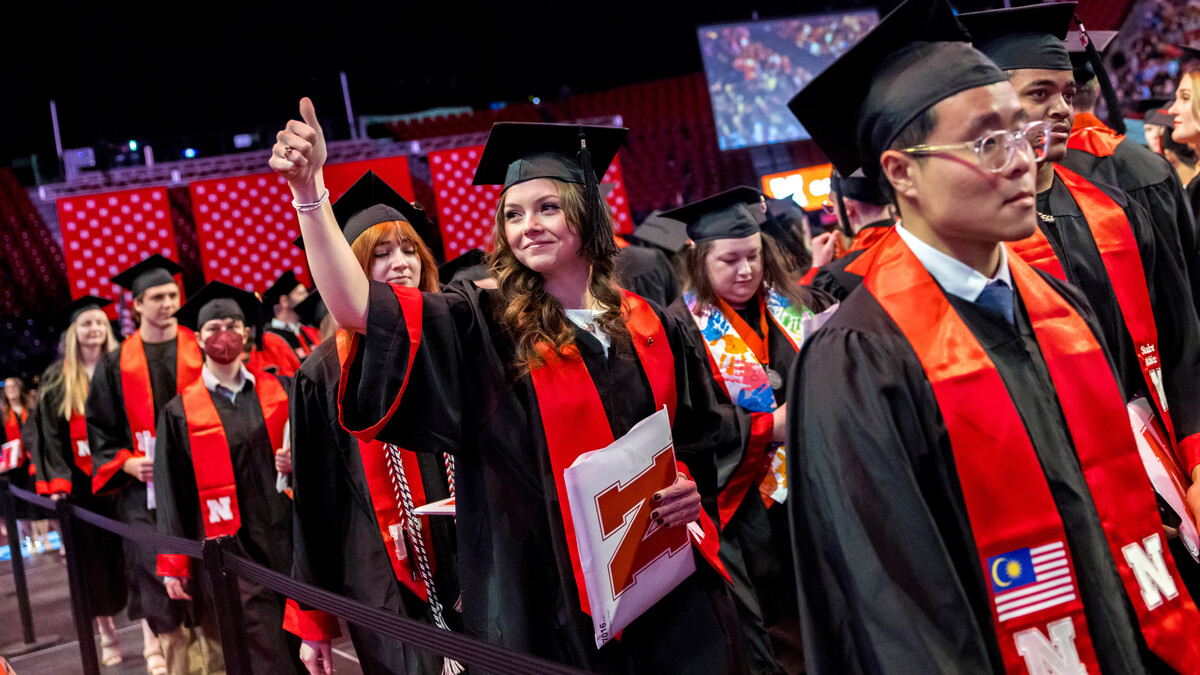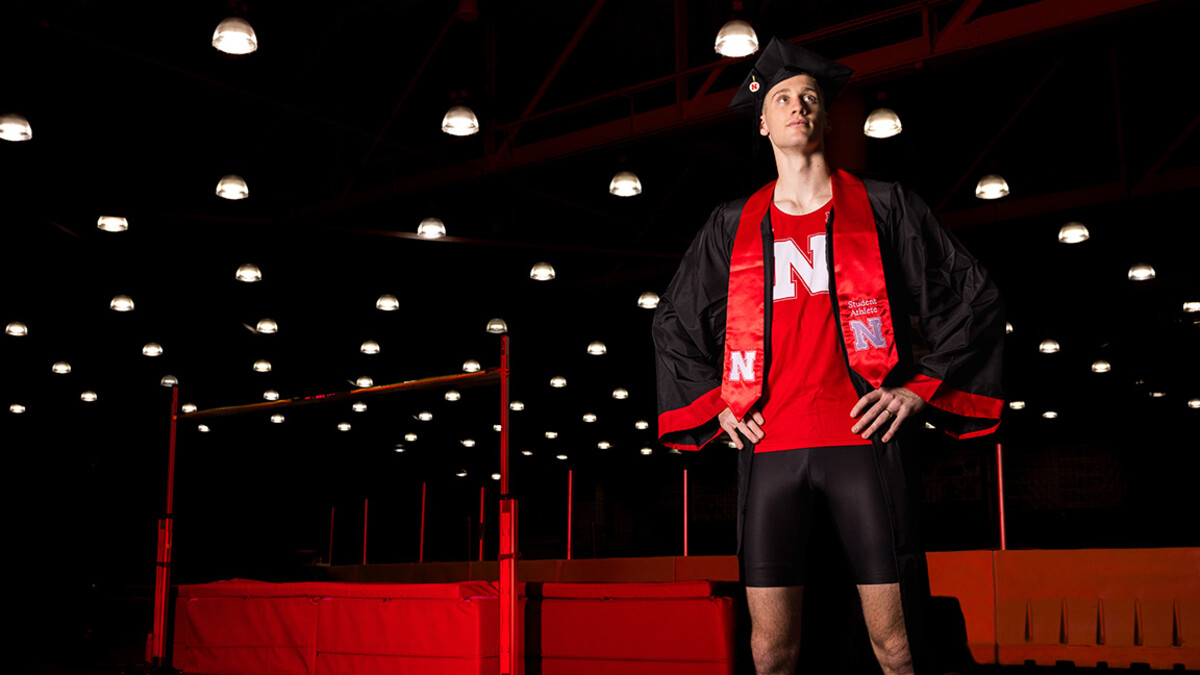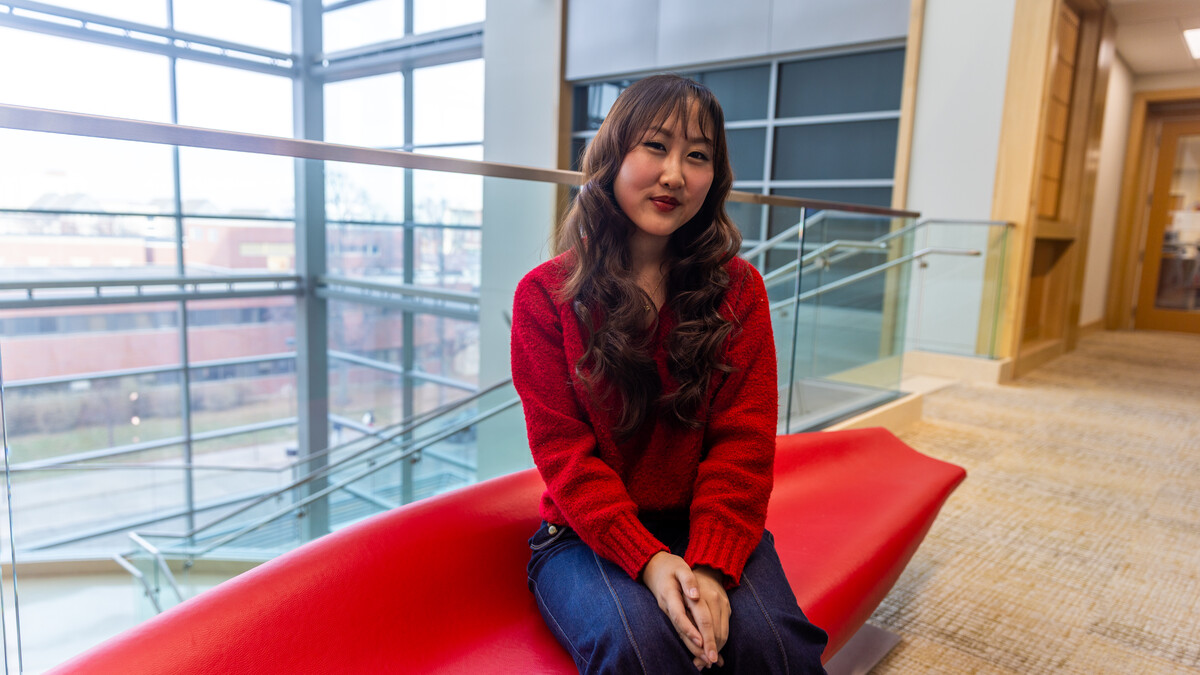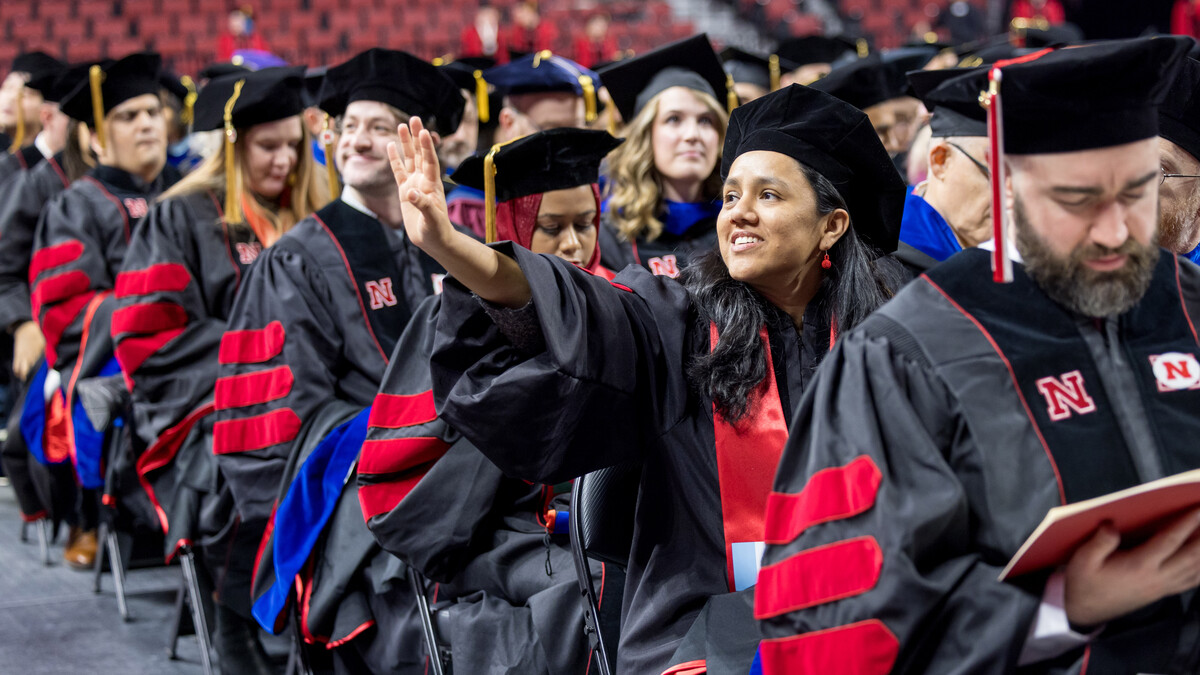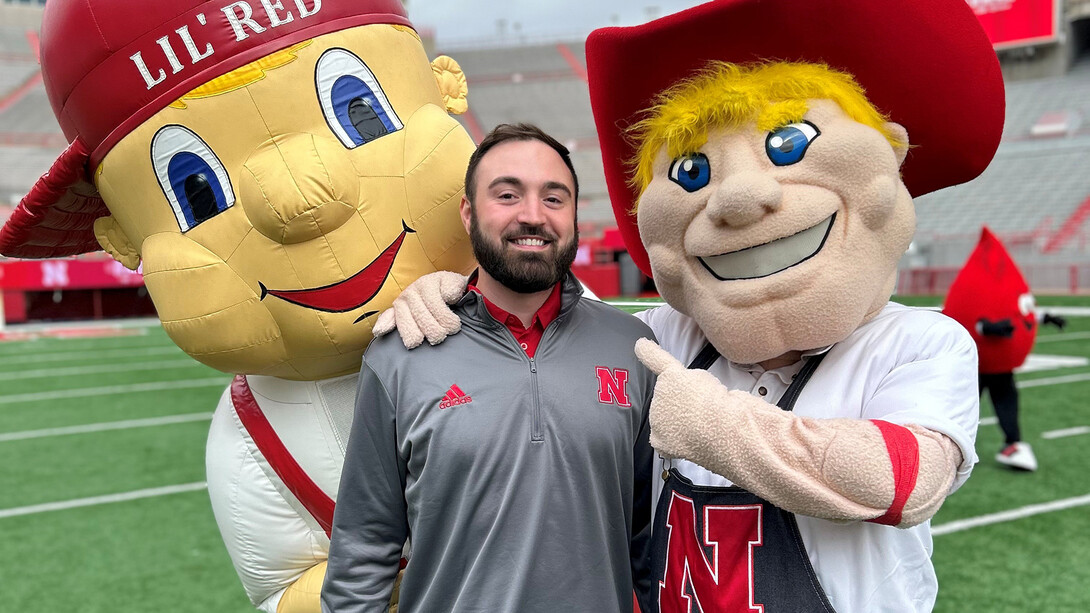
Nebraska’s Connor O’Dell has redefined the value of a free Husker T-shirt.
As a freshman at the University of Nebraska–Lincoln in 2015, O’Dell ventured to a Husker men’s basketball game for the experience — and the freebies.
“They were giving out free ‘Avery Strong’ T-shirts if you swabbed your cheek,” O’Dell said. “I didn’t know what it was about, so I just did it. I really wanted the shirt.”
That simple act — through which he joined the National Marrow Donor Program registry — changed O’Dell’s life and potentially saved another. Four years later, while working in Nebraska Athletics, he got the call — he was a match.
“They asked if I wanted to move forward, and I said, ‘Yeah, why not?” he said. “It was a chance to help someone.”
A deeper meaning
O’Dell’s decision had personal significance. Months before that cheek swab, his mother was diagnosed with ovarian cancer — a battle she would fight for nearly seven years before passing in 2022.
“She was still fighting in 2019 when I donated,” O’Dell said. “She, along with my dad, took me to the hospital in Omaha, stayed with me overnight and drove me home. It was really special.”
While O’Dell didn’t register because of his mom, her experience brought clarity to the decision.
“Everybody knows someone who’s gone through something like this,” he said. “And not every form of cancer has a donation option like this — but this one does. It’s one way people can make a difference.”
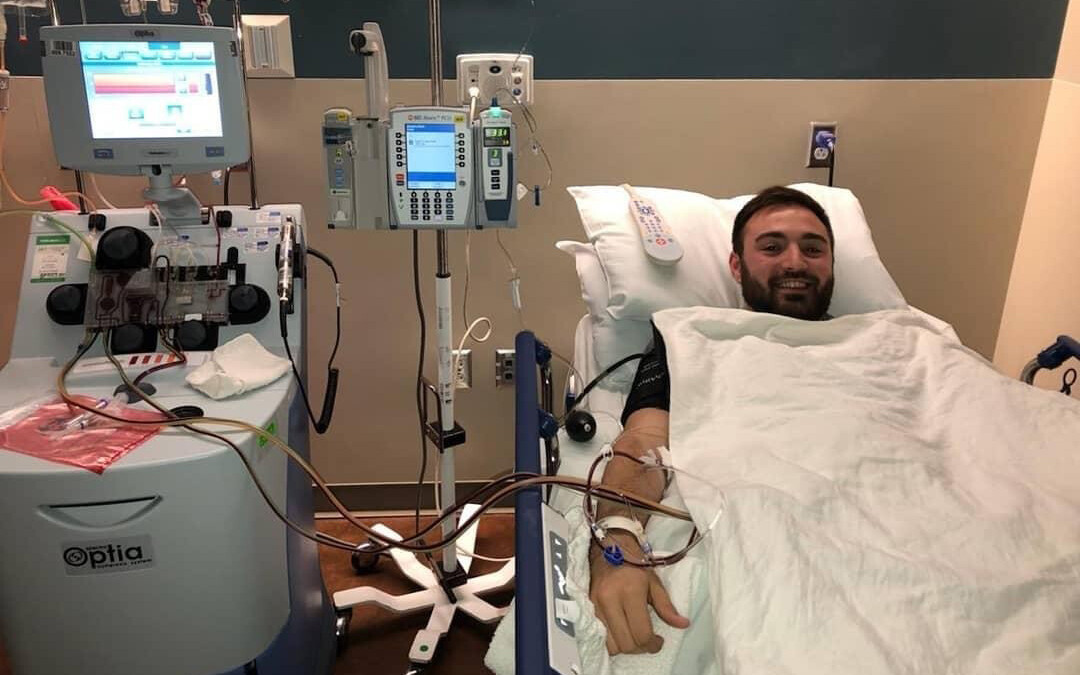
Not what you might expect
The donation process, O’Dell said, is far easier than most people assume.
He underwent a non-surgical peripheral blood stem cell procedure through the University of Nebraska Medical Center. For several days leading up to the donation, he received injections to stimulate production of blood-forming cells. Then, he spent about five hours connected to a machine that collected the stem cells from his blood.
“There’s a perception that it’s this intense, invasive surgery, but for most people, it’s not like that anymore,” O’Dell said. “It was a little exhausting — the injections made my bones ache by the last day — but the donation itself wasn’t painful. You just have to lie still.”
Nationally, more than 90% of all donations use the same peripheral stem cell process that O'Dell experienced. The national program also covers 100% of all costs associated with the donation process.
From information provided through the national program, the marrow O’Dell donated was shipped out of Nebraska to a young woman a few years older than him, someone at a critical stage in her life and hoping to start a family. Though O’Dell never connected directly with the recipient, he knows the donation offered hope.
“Knowing my donation helped someone fighting for their future made it all feel worth it,” O’Dell said. “It’s incredible to think a quick cheek swab could lead to helping someone miles away.”
Full circle — and back on campus
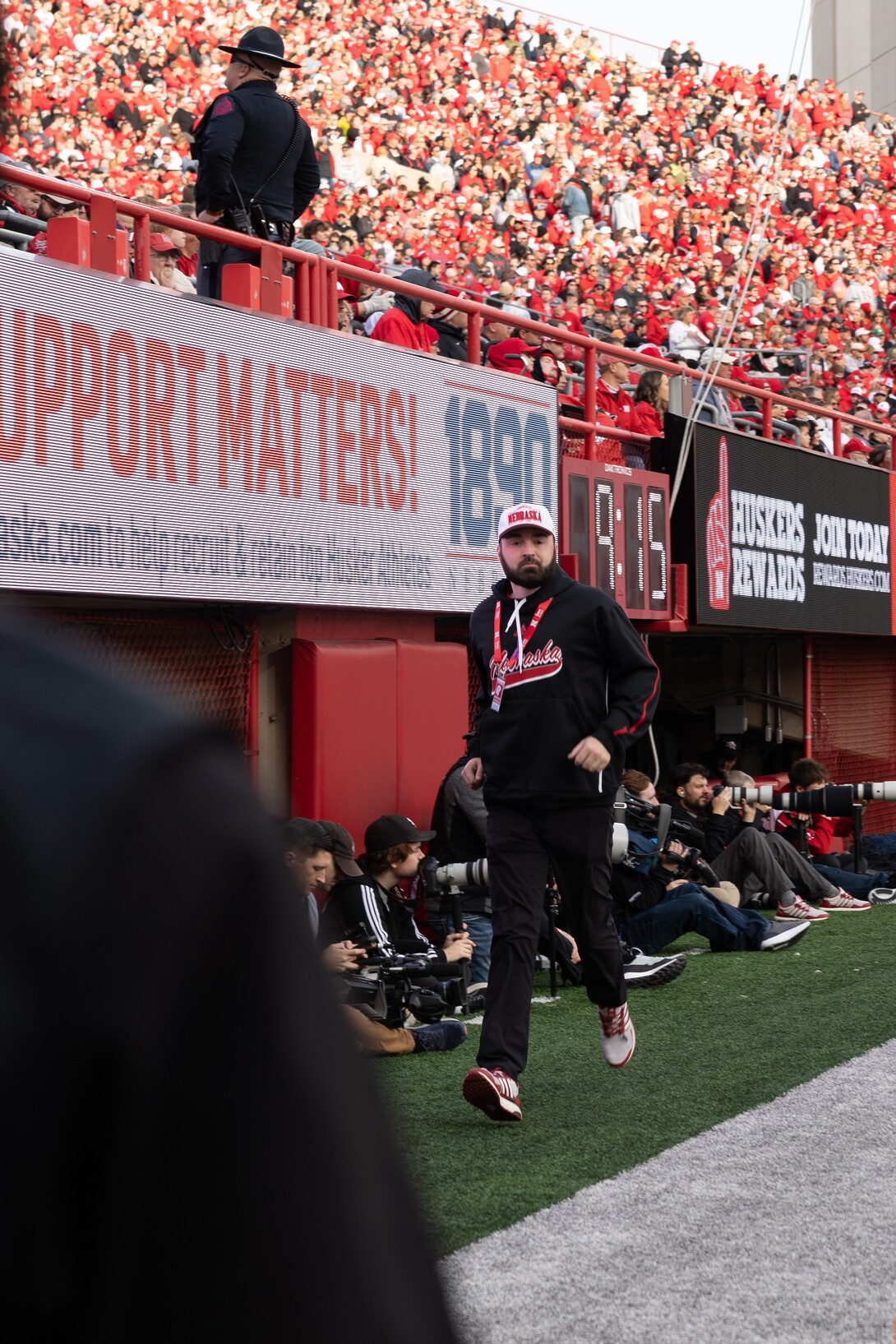
O’Dell now works full time in Nebraska Athletics as a senior account executive with Playfly Sports, helping coordinate partnerships and promotions — including FNBO’s “Kick for Cash.” But he’s also helping bring the donor registry back to campus.
On Sept. 20 — World Marrow Donor Day — the national program will host a cheek swab drive outside Memorial Stadium. From 11:30 a.m. until 2:30 p.m., students, staff, faculty and fans between the ages of 18 and 40 who are in relatively good health can register as potential donors on Stadium Drive outside the west side of the stadium.
“It takes just a couple minutes to fill out the info and swab your cheek,” O’Dell said. “You may never hear from them — or one day, you might get the call that you’re a match.”
Fans who opt to join the registry are not committing to a donation. The act only makes information available to doctors who may be looking for a lifesaving match. Learn more about the process and World Marrow Donor Day.
Game day festivities will also include a special halftime recognition, featuring a young Husker fan who received a lifesaving donation from a Michigan fan. Both will be honored on the field during the Sept. 20 game.
In 2019, not long after his donation, O’Dell was recognized on court during a Husker basketball game — part of the same kind of event that first led him to join the registry. Standing beside him was Avery Harriman, the son of former Husker basketball coach Chris Harriman and the young cancer patient whose fight inspired the “Avery Strong” campaign — and the free T-shirt that started it all.
“I think it’s the coolest thing I’ve ever done,” O’Dell said. “Someone out there might still be here because of what I did. And it all started with a free T-shirt.”
